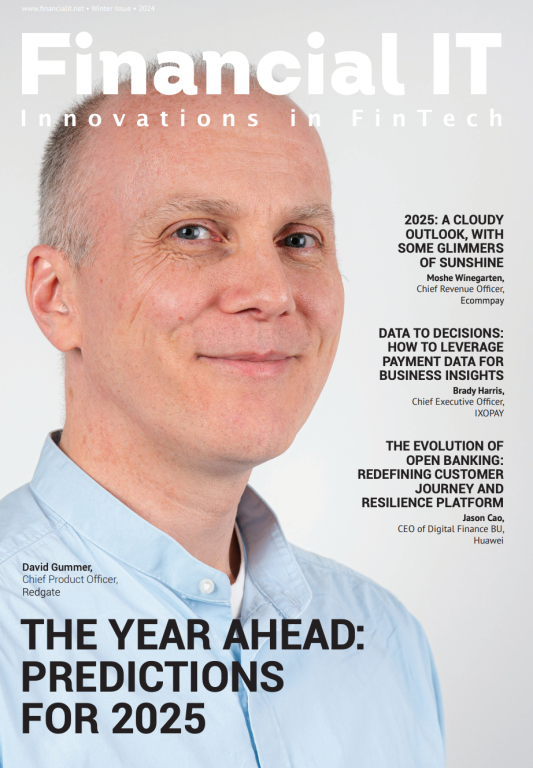Published
- 02:00 am
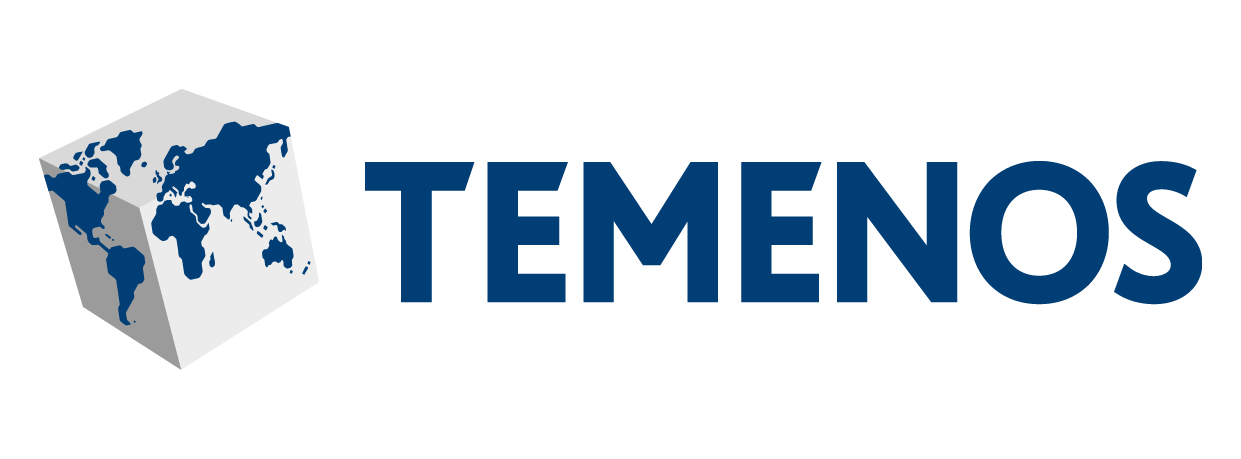
A leading US personal finance platform selects Temenos technology to power its Invest, Borrow and Spend products for its hundreds of thousands of clients Temenos (SIX: TEMN), the banking software company, today announced that M1 Finance, the Finance Super App™, has selected The Temenos Banking Cloud. With Temenos, and through collaboration with a third-party bank, M1 will broaden its suite of financial services to include banking, starting with deposits and payments and eventually expanding into lending.
M1’s mission is to empower financial well-being by creating one of the world’s best platforms for long-term money management. The company has created a suite of financial tools enabling clients to Invest, Borrow and Spend. M1 takes the complexity out of investing, making wealth creation easy while promoting healthy financial habits. In July 2021, M1 completed a round of Series E funding that propelled it to unicorn status with a valuation of $1.45 billion.
Economic uncertainty in the face of the global pandemic has led to an increased appetite to build wealth, with ~20% of market activity now coming from retail investors.[1] Over the past year and a half, M1 has more than doubled its client base and quintupled its assets under management to $5 billion. For its next stage of growth, M1 is seeking to redefine financial services and move into the banking industry through collaborative efforts.
To do this, it needed a cloud platform that could connect to M1’s front-end, scale massively, and move quickly as M1’s strategy evolves. Temenos’ open cloud banking platform will serve as the foundation for M1 to launch banking services, while creating hyper-efficient cost structures. Using Temenos Model Bank methodology and the pre-configurations for Temenos Transact and Payments, M1 will be able to quickly roll out new products and features. The increased efficiency, agility, and flexibility will enable M1 to deliver seamless, outstanding client experiences.
Brian Barnes, Founder & CEO, M1 Finance, said: “We believe that our clients should have total choice, control and transparency over how they achieve their personal and financial goals. We are passionate about helping people from all walks of life to grow their wealth and build their financial future. To fulfill this promise, we need technology that is fast, open, and scalable as we continue to grow our products and client base. This partnership will help us build a stronger, faster, more secure technology stack that makes our clients’ experience on M1 even better. Temenos’ open cloud banking platform will enable us to support massive growth and make wealth creation accessible to every American.”
Jacqueline White, President – Americas, Temenos, said: “At Temenos, we have a vision to power a world of banking that opens up opportunities for be people to achieve their ambitions. We are delighted that M1 will use the Temenos Banking Cloud to deliver on its mission to help its clients take control of their financial future and build their wealth. Temenos’ open cloud technology will pave the way for innovation, empowering M1 to create collaborative products that challenge how we think of banking, delivering a seamless experience and banking services that work for its clients wherever they are in their journey.”
Related News
- 03:00 am

2.2 billion people around the world have visual impairments
Unique notches on the Touch Card’s short side allow the person to distinguish it between a credit, debit or prepaid card
Mastercard extends its commitment to inclusivity by introducing a new accessible card standard for blind and partially sighted people, called the Touch Card. There are few effective ways for the visually impaired to quickly determine whether they're holding a credit, debit or prepaid card, particularly as more cards move to flat designs without embossed name and numbers. Mastercard is addressing this challenge with a simple yet effective innovation.
“The Touch Card will provide a greater sense of security, inclusivity and independence to the 2.2 billion people around the world with visual impairments,“ says Raja Rajamannar, chief marketing and communications officer. “For the visually impaired, identifying their payment cards is a real struggle. This tactile solution allows consumers to correctly orient the card and know which payment card they are using.”
With the new Touch Card, Mastercard has improved upon a current design standard by introducing a system of notches on the side of the card to help consumers use the right card, the right way, by touch alone. The new Touch Card credit cards have a round notch; debit cards have a broad squarish notch; and prepaid cards have a triangular notch. The standard has been designed to work with point-of-sale terminals and ATMs, ensuring it can be deployed at scale.
Mastercard’s concept has been vetted and endorsed by The Royal National Institute of Blind People (RNIB) in the U.K. and VISIONS/Services for the Blind and Visually Impaired in the U.S. The card was co-designed by IDEMIA, the global leader in Augmented Identity, providing trusted solutions in the physical as well as digital space.
“As the banking industry responds to new trends and developments, it’s critical that any innovation brings progress for everyone, including those with a visual impairment,” says David Clarke, RNIB’s director of services. “We’re very pleased that Mastercard understands how important it is that blind and partially sighted people have equal and independent access to their own finances.“
“Innovation should always be driven by the impulse to include,” adds Rajamannar, who is also the company’s Healthcare president. “With one in seven people experiencing some form of disability, designing these products with accessibility in mind gives them equal opportunity to benefit from the ease and security of a digital world. No one should be left behind.”
Mastercard has been embedding its signature melody at checkout counters worldwide, a signal to everyone – the sight impaired in particular – that their card transaction has gone through successfully.
Mastercard’s launch of the Touch Card underscores its commitment to inclusivity. It follows the introduction of True Name™, designed in support of the transgender and non-binary communities. The company’s commitment as a brand is to not only stand against inequity but to be an agent for change.
Related News
- 05:00 am

Soft spot in the digital revolution: Dubai-based startup Stonses launches platform that enables users to preserve memories of loved ones
Earlier this year, Microsoft patented conversational AI technology that can preserve personas of the deceased through chatbots, in an effort that appeals to the softer side of human beings. Stonses, a Dubai-based startup, has similarly launched a blockchain-powered platform, one that will enable users to preserve memories of their loved ones in a digital format. Stonses' platform, which enables its users to create unique digital identities of real-world objects, is based on Verofax's blockchain-powered asset management and NFT platform.
In today's digital era, memories associated with people exist in the physical as well as the digital world. Pictures may contain real-world objects that hold emotional significance, while many people associate key events' with objects like physical locations, family videos, wedding gifts, or even household items, which can carry priceless memories of a person we were close to. However, these memories may be scattered on phones and across locations, some are lost and others are discarded, while memories associated with them are also lost. Stonses aims to bring a permanence to those memories, through digital replicas of real-world objects linked to NFTs created by family friends and colleagues.
To make this happen, Stonses' memorial platform leverages NFT technology with QR codes as Physical interactions, which the user can attach to any object that reminds them of their loved ones. A digital replica of the object is then built, and a unique identity is assigned to the object. This data is loaded onto an immutable blockchain, which enables the user to preserve the object and its associated memories forever. The user, however, retains complete control over the data, and decides which is made public and what remains private, defining who has the right to create memories and who has only read access. By scanning the QR tag that connects the object to its digital replica, the user can instantly bring it, and the memories associated with that object, back to life. Thus, the QR tag serves as the bridge between a person's memories and objects associated with them, for sharing with the public, amongst close family or a friends network securely, with Blockchain.
Stonses' memorial platform is built on top of Verofax's immutable blockchain application, which brings decentralized trust and verifiability to digital objects. The QR code is a unique identifier that represents the digital object. As smartphone penetration levels go higher each year, such nimble technologies carry the potential for mainstream adoption. The shift from hardcopies to digital copies of images, books, and music is a clear signal that points to the appeal of digital objects over physical ones.
Chief executive officer of Stonses, Miha Balek says "The personalized gifts industry is expected to reach $43.3 bn by 2027 while objects are increasingly associated with people who own, use, or gift them. Digital and physical objects make up digital tokens, protected by Blockchain technology. Stonses' memorial platform is the first to help people preserve and exchange their personal belongings across generations with technology. Expect other functionalities to include treasured assets to be transferred, with ownership based on smart contracts."
Wassim Merheby, CEO of Verofax, adds "When an object is replicated or digitally combined with certified content, its replica is called a digital twin or non-fungible Token. The first NFT project was launched in 2015 on the Ethereum blockchain, but today assets and belongings can be tokenized digitally by making use of blockchain technology, which helps establish ownership and identity and seamless conditional transfer among user wallets.
Verofax's blockchain-based asset management platform, which shoulders Stonses' memorial platform, is also being leveraged for other use-cases across industries. For example, retailers are using Verofax's solution to render digital identities to their products along with information around their origin, composition, and environmental sustainability.
The ability to interface stakeholders securely and enable easy asset transfer and content access opens up new possibilities for organizations like Stonses, which is leveraging the direct-to-consumer interface to consolidate memories and assets of significance value. Stonses business model adds value to our personal lives, value that goes beyond the realm of monetary measures and efficiencies to that of meaningfulness."
Related News
- 05:00 am
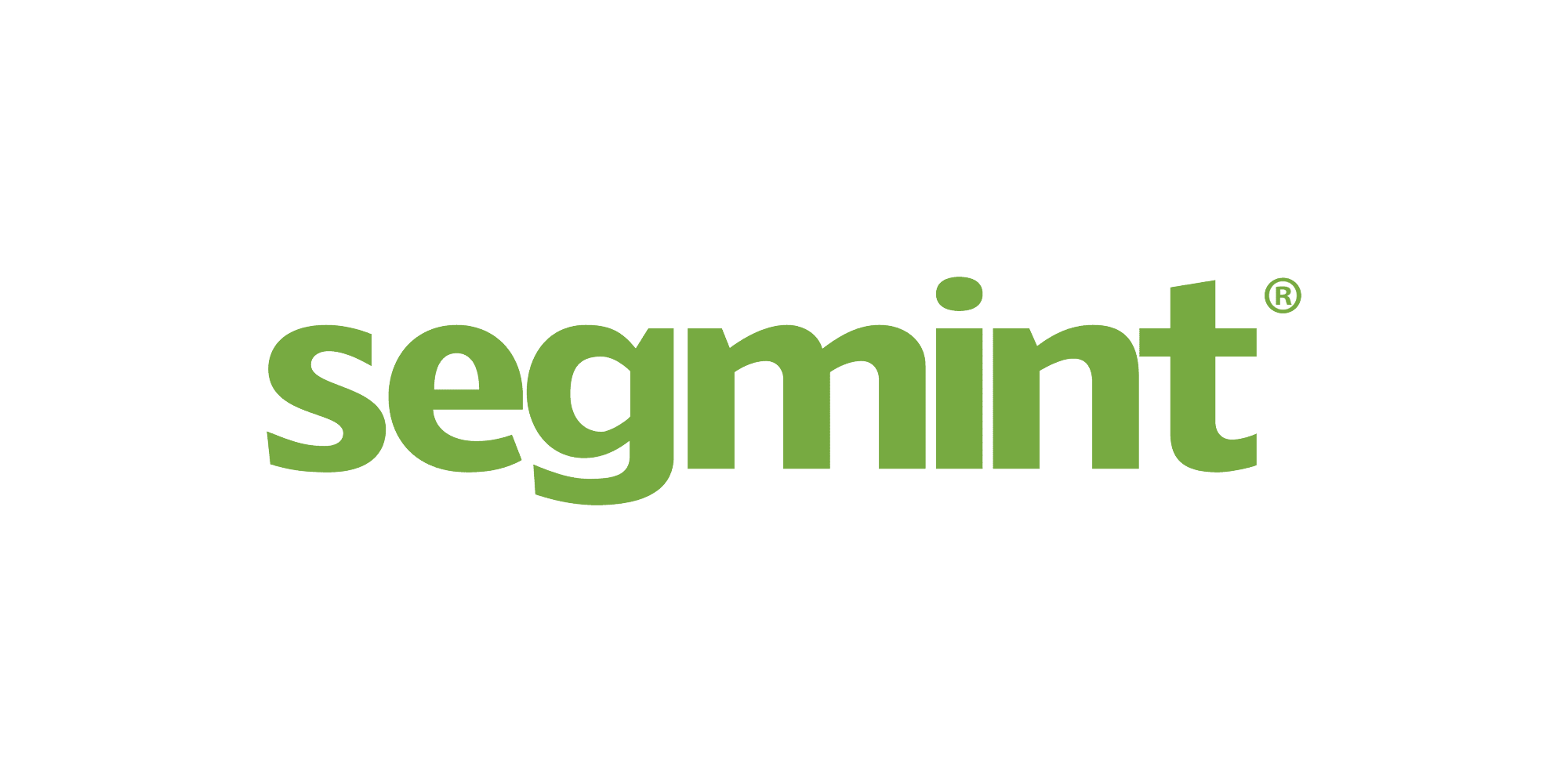
FIs can now leverage Financial Health KLIs to identify and assist their account holders experiencing a wide variety of financial hardships.
Cuyahoga Falls, OH, Oct. 25, 2021 (GLOBE NEWSWIRE) -- 73% of Americans rank their finances as the number one stress in their life. Segmint®, the global leader in transaction cleansing and analytics for financial institutions (FI), has announced the launch of its Financial Health Key Lifestyle Indicators® (KLIs®) to solve for the significant gap of overall financial health and wellness that has plagued the financial industry. The problem is two-fold: a lack of tools and financial education programs with the right products and services to empower those account holders suffering from financial stress; and the inability to proactively identify those who are in or on their way to financial hardship.
Financial institutions traditionally have not done enough to bridge the gap, and account holders today expect their primary FI to anticipate and solve all of their financial needs. Whether an account holder proactively reaches out for help or not, financial institutions are the experts and need to initiate outreach on all channels with tools, educational programs and advice.
The Segmint Financial Health Indicator KLIs can drive strategic decisions when planning innovative campaigns and products to increase financial wellness in your account holders. The use of data insights derived from recurring financial spend patterns and credit transactions, specifically from these KLIs, can put an FI in a differentiated position to assess account holders’ financial stressors and trigger engagement to provide support and education.
“The Financial Health KLIs will be a game-changer for our credit union. The ability to determine in real-time when one of our members may be experiencing financial stress or hardship allows us to be proactive in our outreach to them. We have a very robust financial coaching program that offers individual financial advice for members, these KLIs allow us to identify who will need that service and when. This not only helps our members but financial coaching generates new product leads for our credit union, a real win-win situation,” said Jon Maroni, Marketing Director at Canopy Credit Union.
Recently The Financial Brand called out FIs and Fintechs alike for “blowing it” when it comes to making any real strides at affecting the financial health of their account holders. Ironically, Segmint went live with their newest set of KLIs to target this issue on the very same day their article was published.
“Together we can have a positive impact and change people's financial stories for the better,” urges Segmint’s co-founder Rob Heiser. “Financial institutions can do more. Up until now, it has been a constant struggle; prior to Segmint, data has been notoriously messy and hard to make sense of. Segmint is here to help make sense of all of the unstructured payment and transaction data and deliver insights which we can prove builds stronger relationships between an FI and its account holders. Every institution has to strive to best serve their customers and members by leveraging this valuable data as it tremendously benefits both the consumer and the banker.”
Financial institutions need to make overall financial health and wellbeing a fundamental principle within their ecosystem, where the results are limitless and have a positive direct impact on account holder relationships and financial stability, revenue, long-term brand loyalty and relevancy.
Related News
- 02:00 am
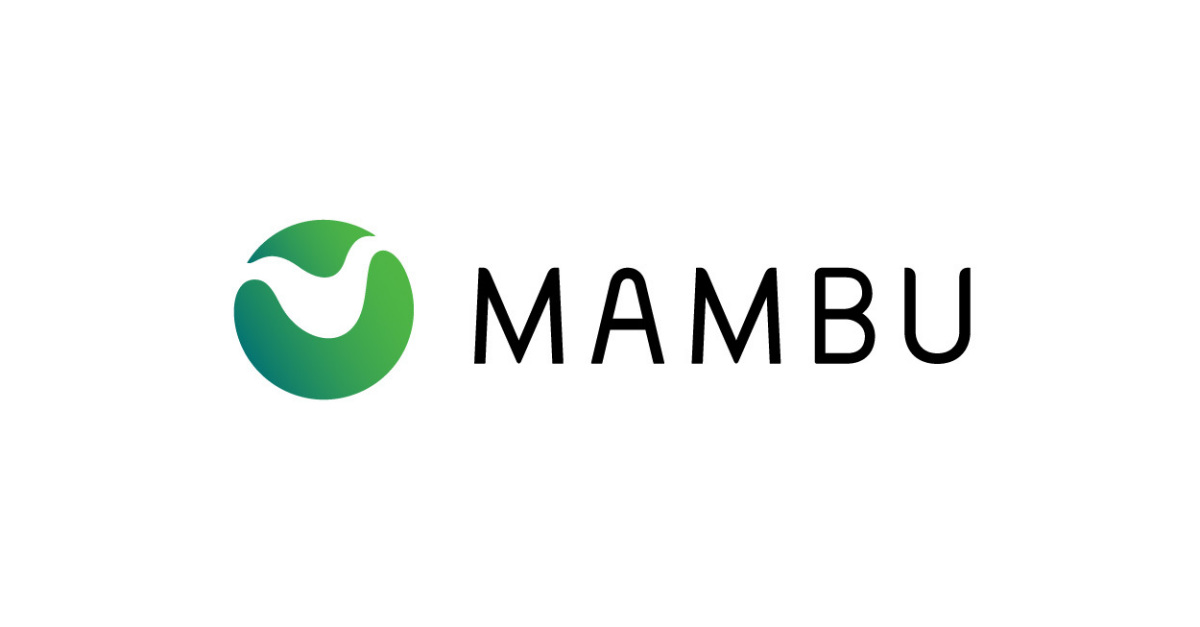
A new report from Mambu and Google Cloud shows AI will power personal customer experiences in the digital financial revolution
Artificial intelligence will deliver personalised experiences and reshape the world of banking as we know it, according to a new report from leading SaaS banking platform Mambu and Google Cloud.
The ‘Bank of the Future’ whitepaper identifies ‘ubiquitous banking’ as the next frontier in the digital financial revolution, and reveals three building blocks that will enable the future of banking:
Customer-centric strategy - products and services built around the customer for the customer, embedding AI technology to hyper-personalise the user experience
Value-based AI use cases - applications anchored on business value (revenue growth, cost saving or risk reduction) and customer value (customer experience or time to market)
Composable technology architecture - flexible, cloud-based core banking software that enables true “plug and play” functionality to respond to changing customer needs, market dynamics or technology trends
Driving this change is a combination of disruptive forces in the market. The report shows that the pandemic has increased consumer demand for always on, personalised digital and mobile-first financial services. Unlike 20 years ago, traditional banks are no longer the go-to for those looking to move or manage their money.
With better access to cloud services and increasing competition from a new wave of fintechs and non-traditional players, incumbent banks are under threat as consumers turn to neo banks and digital challengers in search of a better customer experience and utility-led services.
Eugene Danilkis, CEO at Mambu, said: “The report shows the world that banks were originally created to serve no longer exists. Historically built to last, today banks need to be built to change. If traditional players want to reposition themselves as lifestyle partners, in tune with the modern banking needs of their customers, then they must evolve rapidly - and without fear.
“Key to this will be their embrace of AI technology which has broad ranging applications from fraud prevention and risk management to delivering personalised customer experiences and driving efficiencies through greater automation. But banks must act fast if they want to avoid getting left behind. Only by leveraging the capabilities of AI and cloud technologies will they be able to reimagine the customer experience and tap into new revenue streams in a competitive market.”
“As the financial services industry continues to digitally transform, there is an increased need for solutions that help businesses deliver personalized experiences to customers,” said Joachim Wuest, Director, Financial Services Industry, Google Cloud. “We look forward to partnering with groups like Mambu to bring AI-powered solutions to banking organizations as they move along their digital transformation journeys.”
The report points to changing regulation, such as the introduction of open banking and PSD2, as forces accelerating the disintermediation of traditional banking providers. With dedicated regulation now emerging for fintechs and digital banks in some jurisdictions, it’s a case of adapt or die for incumbent players.
But banks have one asset on their side - data. With around a billion credit card transactions every day, banks have access to one of the largest volumes of customer data of any industry. Using AI, banks can harness this information to unlock unparalleled insights and growth.
McKinsey estimates that AI technologies could deliver up to $1 trillion of additional value each year for the global banking industry, combining a deep understanding of customer needs with the composable cloud architecture to roll out hyper-personalised services at scale.
Related News
- 06:00 am
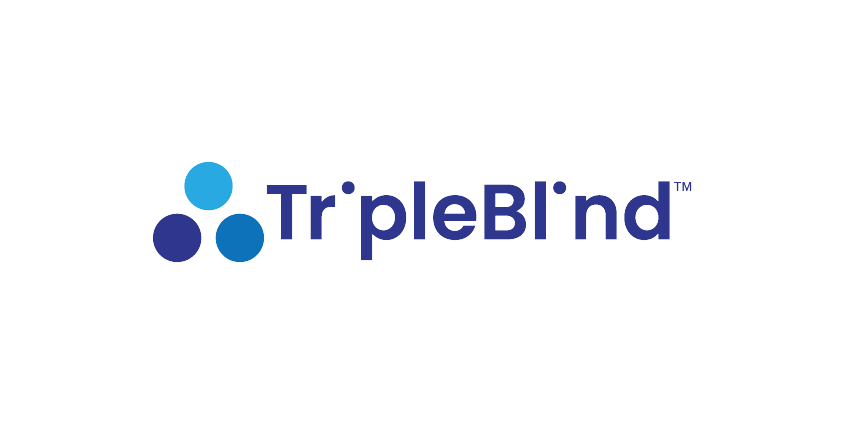
TripleBlind, the private data sharing company that offers proprietary cryptographically-enforced data privacy solution, today announced a new partnership with Eagle Alpha, the pioneer connecting the universe of alternative data. Through this partnership, organizations, principally investment firms, can more quickly and comprehensively analyze companies to generate more effective valuations during mergers and acquisitions, and identify strategies to create new value post-financial events.
TripleBlind’s solution enables data vendors to share sensitive data with data buyers while allowing only specific operations on that data. Sharing of sensitive and regulated data has historically been challenging due to regulatory and geographic concerns and a lack of robust technology solutions. Along with offering more accuracy and efficiency than all other competing forms of data collaboration, TripleBlind will help Eagle Alpha ensure its clients adequately enforce the digital rights of data owners and all data privacy regulations in place in more than 100 countries and four U.S. states today, including HIPAA, GDPR, and CCPA.
“Through our opportunity to work with Eagle Alpha on various projects and panels in recent months, both companies believe we have complementary services that will be beneficial to our combined client base,” said Sam Abadir, director of partnerships at TripleBlind. “Eagle Alpha is the leading connector in the world of alternative data, and we look forward to increasing collaboration capabilities for Eagle Alpha’s clients.”
The need for data privacy has never been higher, following the App Annie settlement with the SEC, in which the company was fined $10 million and became the SEC’s first enforcement action of securities fraud against an alternative data provider. At Eagle Alpha’s The ONE Conference in October 2021, Adam Storch, associate director, leader of event and emerging risk examination team at the SEC, and Steven Buchholz, assistant regional director, enforcement at the SEC, emphasized the importance of due diligence at both the vendor level and the dataset level and discussed the steps being taken to prevent further deception and misrepresentation in alternative data following the App Annie ruling.
“Earlier this year, our company announced three key drivers of industry excellence, one being stronger partnerships,” said Niall Hurley, CEO of Eagle Alpha. “The App Annie settlement highlighted the increased need to prioritize data integrity and privacy when selecting data sharing partners and solutions. Eagle Alpha’s partnership with TripleBlind comes as a result of both companies dedicated work to fulfill that need.”
Related News
- 04:00 am

- With furlough ended, new research reveals that over half (54%) of Finance Managers and Directors are applying for new roles or considering leaving their jobs
- Mental health also at all-time low with over a third (36%) experiencing burnout or exhaustion
The UK’s finance teams have perhaps been the unsung heroes of the workplace during the pandemic, with employees continually working hours and hours of overtime to help prop up the economy during the toughest of times for business. However, new research* Sweep has revealed that the pressures of the pandemic have led to serious levels of burnout, with the new report uncovering demotivated and diminished personnel within finance teams.
The burdens of keeping the business afloat have made us sick!
Over the last 18 months, Finance Managers and Directors have been called upon to lead on some of the most business critical priorities and decisions for UK organisations including managing furlough, keeping redundancies at bay where possible and helping to stabilise the business. And, with furlough ending and we emerge from the COVID-19 crisis, they are now being asked to look to the next 12 months to create a plan that helps businesses recover from the crisis and build the resilience companies need to survive.
These ongoing pressures and long working hours have led to 1 in every 5 (19%) finance employees being signed off as medically sick since the pandemic began. Alongside this a quarter (25%) admitting they are regularly taking sick days as they admit the stresses are finally getting too much.
Inefficient processes are draining resources and ‘leaking money’ from the business
The research also saw Finance Managers and Directors calling for organisations to quickly make significant moves to try and alleviate some of these concerns, with technology being called out as an investment that companies must make to better support their teams. This was demonstrated by around 2 in 3 (62%) of respondents to the recent research stating that their company was leaking significant money due to inefficient finance processes.
What does the finance team of the future need?
The last 18 months has meant that for over half (58%) COVID-19 has put the brakes on digital transformation plans for the finance teams. Alongside this, Financial Directors said that on average 24 hours (23.62 mean score) of time could be saved across the team each week if they used (better) technology to automate key financial processes. Almost three-quarters (71%) believed that automation technology was very important or critical to the finance team of the future.
A serious concern for UK business as finance teams play an integral role in economic recovery
Billel Ridelle, CEO at Sweep, commented on the research: “Given the critical role that Finance Managers and Directors are playing in the UK’s business recovery, it is concerning to hear about the impact of the pandemic on the stability of these roles. The industry often discusses digital transformation as a critical move for strategic business growth, but it seems that finance teams have not been prioritised or the pandemic has put this on the back burner.”
He continued: “When we look to the future of the Office of the CFO in the next five years, it’s clear that technology is going to play an enormous role in attracting and retaining the most talented workforce. It should be a number one consideration for businesses as, in the upcoming months and years, both employees and customers will judge how efficient you are based on your tech stack and a lack of dynamic technology and automation will see people fast jump ship.”
Related News
- 05:00 am
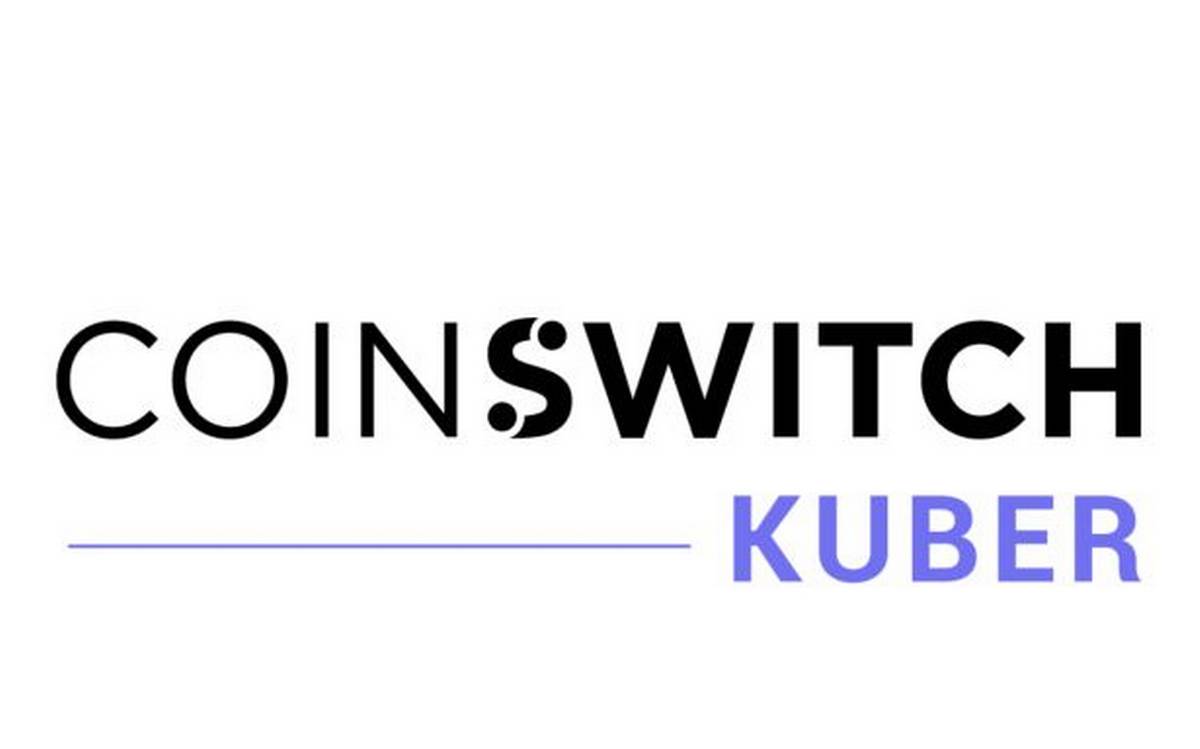
CoinSwitch Kuber, India’s largest and most valued crypto platform, has announced the appointment of Krishna Hegde to its leadership team as Senior Vice President – New Initiatives. Hegde will play a pivotal role in integrating crypto with traditional financial products on the platform to make CoinSwitch Kuber India’s preferred investment destination.
An MBA from the Tuck School of Business at Dartmouth College, where he was an Edward Tuck Scholar with Distinction, Hegde brings in rich experience in setting up new-age financial products in India. He has conceptualized, built and scaled several innovative offerings including Digital Gold — the de-facto mechanism for millions of young Indians to make their first gold investment, at Paytm, where he was a Senior Vice President. He also led a team to launch other successful offerings including Paytm Postpaid, among other lending and insurance products at the digital payments firm.
Most recently, Hegde served as Head of Strategy at Setu, where he launched an industry-first product that enabled easy and broad distribution of bank fixed deposits outside bank platforms. A BITS Pilani graduate, before moving to Indian fintech in 2016, Hegde served as the Managing Director & Head of Asia Credit Research for Barclays in Singapore.
Ashish Singhal, Co-founder & CEO, CoinSwitch Kuber, said, “We are in our growth phase and strive to build innovative financial products in crypto and beyond that make investments easier. We aim to bring financial well-being to every Indian and make money equal for all. With his extensive knowledge of the industry and history of building innovative financial offerings for the digital native consumers, Krishna will play a critical role in helping us get closer to this goal. I am glad to have him as a part of the CoinSwitch Kuber team as we continue to expand into new areas of business.”
Krishna Hegde, Senior Vice President – New Initiatives, said, “The Indian crypto industry is currently ripe for innovations and I am excited to join CoinSwitch Kuber, the leading and most valued crypto company in the country. I am excited to use my expertise to innovate on a variety of crypto and non-crypto products that bring CoinSwitch Kuber closer to our goal of enabling Indians to build wealth.”
CoinSwitch Kuber has raised $260 million in Series C funding from Coinbase Ventures and Andreessen Horowitz (a16z) in September 2021 to become India’s most valued crypto Unicorn at a valuation of $1.9 billion. The company crossed 11 million registered users in a record 15 months and now plans to deliver diverse investment options to its growing customer base.
Related News
- 06:00 am

Reg tech innovators offer a comprehensive cryptocurrency payments compliance solution designed for fast growing crypto businesses
ComplyAdvantage, a global data technology company transforming financial crime detection, and Elliptic, the global leader in crypto asset risk management solutions, today announced a new blockchain analysis and transaction monitoring tool that will help crypto firms detect and avoid financial crime.
The industry-first solution is powered by Elliptic Navigator, a crypto anti-money laundering (AML) monitoring platform. It allows fast-growing crypto firms to undertake continual AML monitoring, fraud and sanctions strategies that will help the industry avoid customers and clients who present a risk of involvement in financial crime, including the financing of terrorism.
The partnership comes at a critical time for the industry, as the ability to monitor crypto transactions has become considerably more challenging with the introduction of new services such as NFTs (non fungible tokens), privacy wallets, and decentralised finance (DeFi) networks. In response, more regulations have been published by the FATF (Financial Action Task Force) and the European Commission to provide greater certainty for any crypto assets that are not covered by existing financial services legislation.
By combining the two worlds of fiat and crypto risk assessment by integrating Elliptic’s blockchain analytics into the ComplyAdvantage platform, users will be able to consolidate their risk management processes, deep dive into blockchain transaction history and risk scoring, and reduce the time and cost spent on integrating compliance workflows between fiat and crypto.
New capabilities within the ComplyAdvantage platform include:
● Simplify SARS submissions — Maintain a full audit trail of crypto transactions and export complete, accurate records to submit Suspicious Activity Reports (SARs) with ease.
“Empowering crypto businesses with bank-grade payments risk solutions is critical to helping them join the mainstream of financial services in a way that is trusted and secure,” said Simone Maini, CEO, Elliptic. “Our partnership with ComplyAdvantage is an exciting opportunity to develop robust solutions that provide businesses with deep insight into a broad range of blockchain technologies.”
Elliptic Navigator is powered by Elliptic’s comprehensive data engine that has collected, labelled, analysed, and risk scored blockchain data since as early as 2013. With 98% of daily crypto transactions monitored, the world’s largest crypto businesses and financial institutions such as Coinbase, Revolut, and Santander rely on Elliptic to understand and act on risk exposure to crypto by applying the highest levels of regulatory compliance rigour.
Powered by ComplyData™, ComplyAdvantage’s hyperscale technology helps to detect transaction monitoring events while uncovering hidden risks throughout the customer lifecycle, helping fintechs like Paxos maintain the highest level of compliance oversight and integrity. This reduces dependence on manual review processes and legacy databases by up to 80% and improves how businesses like Paxos screen and monitor clients and transactions.
"By working with Elliptic we now offer a more comprehensive blockchain analysis transaction monitoring solution for our rapidly growing base of crypto customers,” said Charlie Delingpole, founder and CEO of ComplyAdvantage. “Data is key to preventing financial crime and our hyperscale approach to risk management is enhanced through valuable partners like Elliptic.”
Already the preferred choice of some of the world’s largest banks, enterprises, and high-growth fintechs, ComplyAdvantage uses machine learning to help regulated organisations manage their risk obligations and prevent financial crime. ComplyAdvantage was recently named as one of the world's most innovative companies by Fintech Global.
Related News
- 01:00 am
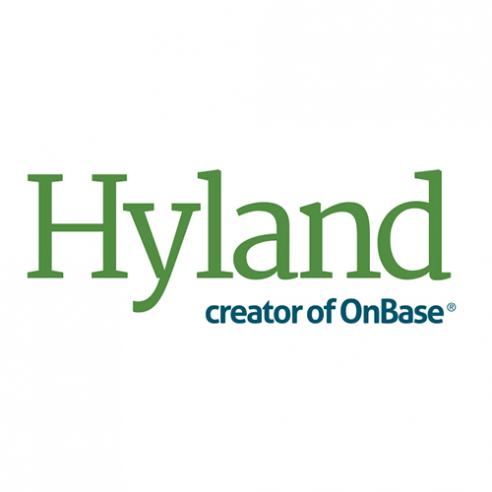
Report evaluates content services vendors’ Completeness of Vision and Ability to Execute
Hyland has been named a Leader in the 2021 Gartner® Magic Quadrant™ for Content Services Platforms*, marking the 12th consecutive year Gartner has recognised Hyland as a Leader within the evolved content services report.
“We believe Hyland’s positioning again in this year’s Leader quadrant reflects our success in helping organisations modernise with end-to-end content services solutions,” said Bill Priemer, president and CEO of Hyland. “This allows customers to achieve a complete view of their content while reducing the cost of doing business and enhancing employee experience. We see this as another indicator that our strategic investments and continuous innovation in R&D are fuelling digital transformation for our customers.”
Hyland’s investments in innovation are bringing to market the Hyland Experience Platform, whichwill deliver feature-rich and rapidly deployable cloud-based content services. The company’s many unique capabilities within content services, including open-source platforms, enablement of low-code application development and repository scalability and federation, are positioning Hyland as the go-to provider for enterprises whose goal is to bring its content management under a single provider
“Hyland is well positioned for the future and to support our 16,000 customers no matter where they are in their digital transformation journey,”added John Phelan, executive vice president and chief product officer at Hyland. “According to Gartner, 30% of enterprises will consolidate their traditional enterprise content management provider in favour of a content services platform that works across content silos.** Today, and with the development of Hyland Experience Platform, we’re excited to further assist our customers and the market along their digital transformation journey.”
*Gartner Inc., Magic Quadrant for Content Services Platforms, Michael Woodbridge, Marko Sillanpaa, Lane Severson, Tim Nelms, October 18, 2021
**Gartner Inc., Content Services Strategy: An Enterprise View of Content-Centric Markets and Applications, Tim Nelms, April 28, 2021
Gartner Disclaimer: Gartner does not endorse any vendor, product or service depicted in its research publications, and does not advise technology users to select only those vendors with the highest ratings or other designation. Gartner research publications consist of the opinions of Gartner's research organisation and should not be construed as statements of fact. Gartner disclaims all warranties, expressed or implied, with respect to this research, including any warranties of merchantability or fitness for a particular purpose.
Gartner and Magic Quadrant are registered trademarks of Gartner, Inc. and/or its affiliates in the U.S. and internationally and are used herein with permission. All rights reserved.

